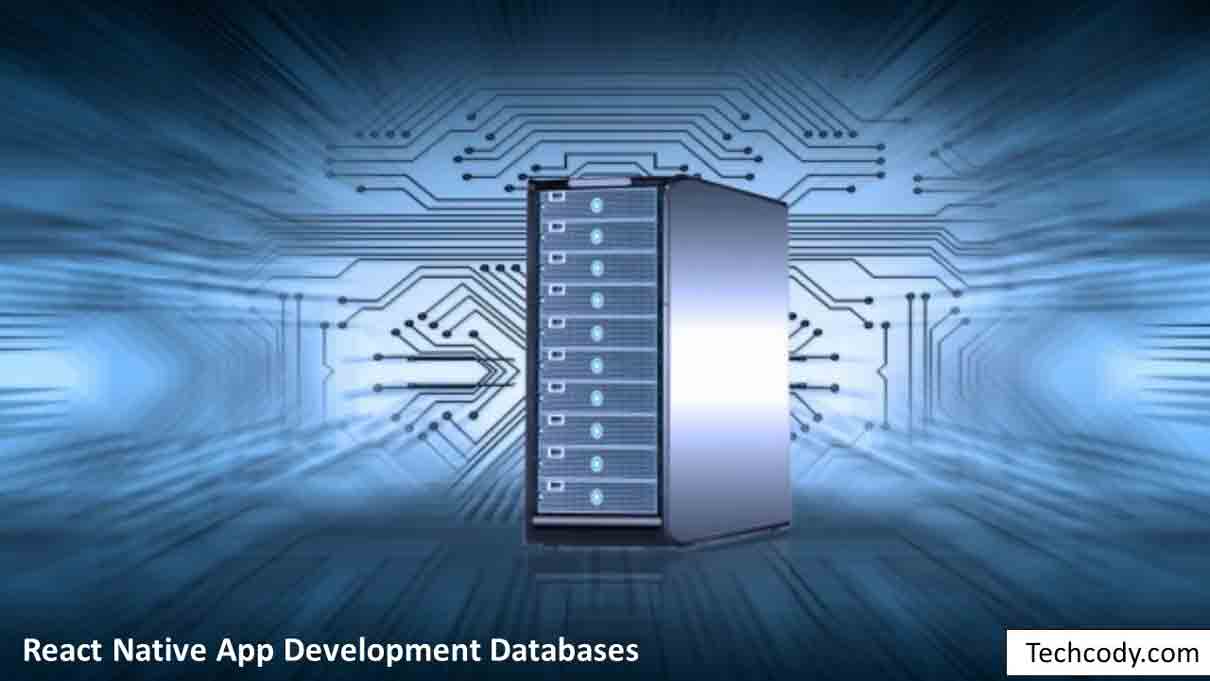React Native App Development Databases
In this blog, readers will find the best local react-native for App development database options. React Native is one of the best performing frameworks to build a cross-platform mobile application for iOS and Android. One of the most common challenges React Native App development is selecting a database for your application.

That’s why the demand for Hire React Native App Developers is increasing, and many organizations rely on the framework and ecosystem to ship mobile applications.
The local data storage database for React Native are listed here:
1. RealM Database
This database was built from scratch for a real-time app running on mobile and wearable devices. The RealM is not an ORM or developed on SQLite; it has a database engine and does not depend on key-value stores. It explains the reason for choosing RealM to handle a vast amount of data or build high-performance applications. This database allows the developers to plan frequent mapping, tables, foreign keys, or other integral fields.
Why use a RealM Database?
- It is an object-oriented database.
- Provides better performance than a relational database.
- OO models make 10x faster models than SQLite.
- It saves the file from operating huge queries.
- Also available for other platforms like Xamarine.
Benefits:
- Realm synchronization services run in the background for recording user interaction. It sends data back online and executes the tasks without affecting the user experience.
- It is offline-friendly, offering every arbitrary requirement of offline-based infrastructure.
- Realm uses different encryption standards for all mobile platforms and ensures security.
High Performance
- The built-in storage engine is written in C language.
- Object directly reflects the database and converts objects.
- It leads to unnecessary copy on the language level.
- Realm calculates offsets, reads from memory, mapping the region with raw value.
- It can handle concurrency with the MVC model.
Pricing
It is 100% open-source and free. For the premium version, it charges $1750. The commercial version is also free.
2. Firebase
Firebase supports a real-time NoSQL database. If you want to approach data synchronization and offline data modification, it is the best option to go for. Firebase fulfills the model and controller in MVC. As the development idea was to offer a user interface, some surplus factors needed to support and make the application fully functional.
Why use Firebase?
- Supports NoSQL database for react=native.
- Data synchronization and offline data modification
- Understandable data access security
- The best option for a scalable application
- Free CDN and SSL layer with advanced cloud storage.
Benefits
- The most significant advantage is using Firebase with real-time data sync.
- Another advantage is, it provides a cross-platform API that requires minimal setup. It does not require accessing the data as Firebase real; instead, it can be accessed directly from mobile.
- Allows the developers to create an application with persistent offline capabilities. It includes marking user presence as off/online.
Security
- Hosted on SSL, and it keeps the connection smooth for the clients.
- Easy integration with local databases like Realm or with other server-side databases for storing sensitive data encryption.
Performance
- Firebase is the most acceptable option for building scalable applications to transfer data to different users at a time. Data serving is conducted quickly. Therefore, it can quickly move the files to any number across the globe.
- Firebase offers add-on advantages for hosting with free CDN and SSL Layer and cloud storage.
Pricing
Firebase can be availed of free up to 1 GB of data storage. It also offers a minimum price of $25 for 2.5 GB of data storage.
3. SQLite
SQLite database is developed to offer local storage to mobile applications. It is a relational database system for designing the storage demands for mobile applications. The term ‘lite’ refers to a lightweight library depending on minimal setup. SQLite is integrated with mobile apps for directly accessing the database.
Why use SQLite?
- Enables offline persistence with SQLite
- Complements most of the SQL-based standards
- Onetime fee for long-term usage.
- Encryption algorithms with security enhancement mode
Benefits
- Expressed as an ACID-compliant database implementing most of the SQL, depending on some significant omissions.
- The architecture is based on the tools to handle data with ease and simplicity.
- The SEE extension allows SQLite to read the data in an encrypted way to make sure the algorithms are working.
- Apart from SEE, there are other implementations like WxSQLite, SQLCipher, and SQLiteCrypt.
Performance
- SQLite can query performance at the most extreme level.
- The easiest way for optimizing the performance is to create disk access less often.
- While performing basic operations, one can use the correct set of Begin and End operators every time the transaction is conducted.
- This approach is simple and convenient for developers to locate SQLite transactions.
Pricing
It is a public domain, thus free to use. However, if any organization wants to have a license, they can pay a $6000 fee at a time.
4. Async Storage Class
It is a local storage system that gives the developers the ability to persist the data between application reboots. It comes with built-in integration with React Native; therefore, it can be used without additional deployment. All components are stored in the class named Async Storage, are developed as strings, and must be serialized before storing and deserialized. It explains slow runtime with no indexing capacity. However, it is not advisable to use massive data amounts.
Why use Async Storage?
- In-build database.
- Allows storing the data locally.
- No need for additional deployment.
Operations with Async Storage
The runtime offered by the database is comparably slow. In terms of security, no encryption is available. Data automatically vanish if the users delete the applications. It does not offer offline capabilities unless binding with a full-scale database.
To Wrap Up
When looking for a unified database for the react native app development, you first make a list of the requirements you have for a particular application. React native developer, hire onsite developers to work on the database with every condition. Realm works perfectly for the local database, whereas SQLite cannot offer the same level of performance. In terms of security and scalability, databases like MongoDB work much better. For a backend-based database, DynamoDB would be the clearest solution.
Organizations with a small database are looking for a generic solution and want to go for a full-scale database. Find out a suitable React Native App Development company to choose the most compatible database as per your requirement.
